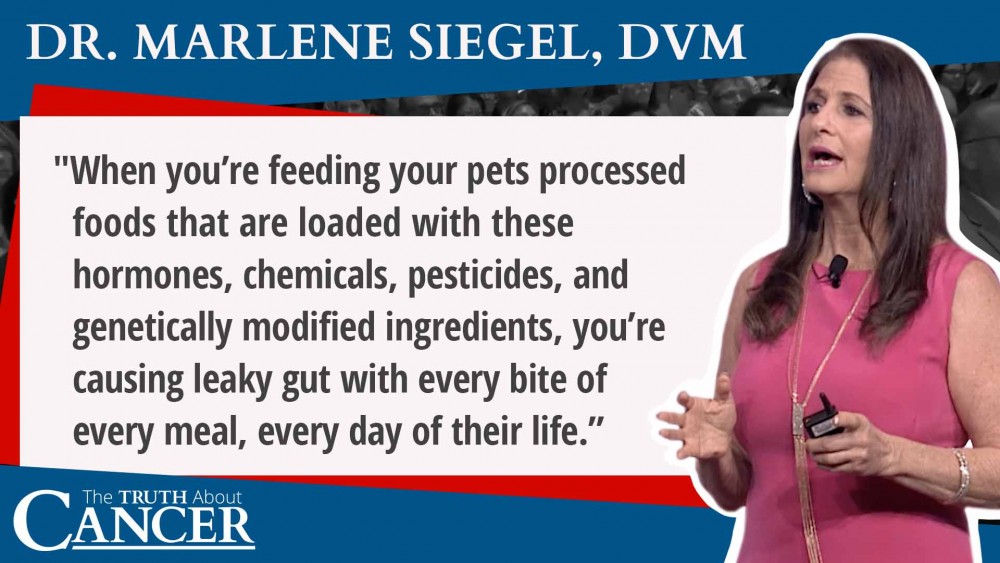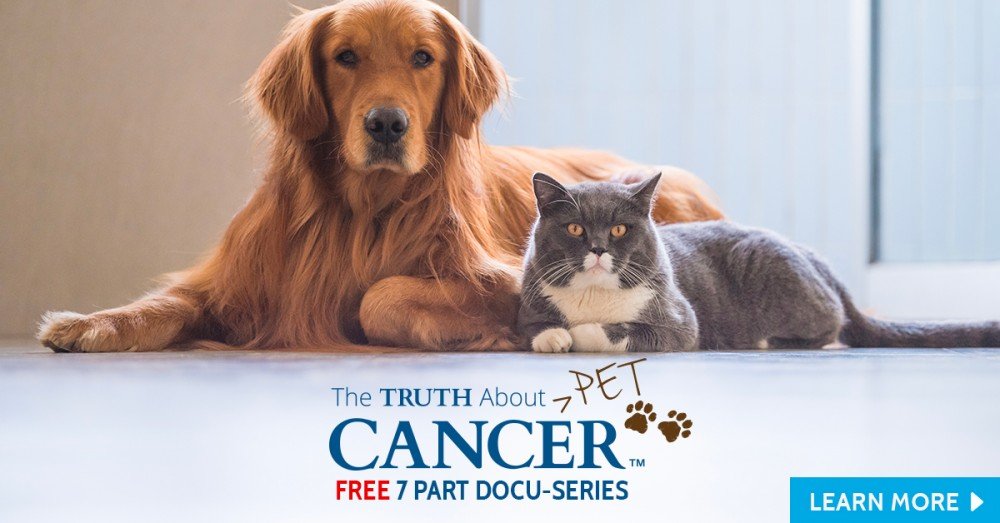Video Transcript: We Are What We Eat: How the Right Diet Leads to a Better Life For Pets (& Humans!)
Ty Bollinger: Our pets are the innocent victims of whatever potentially damaging thing we choose to give them. Shouldn’t we choose only the best for them? Continue watching as Marlene Siegel, a holistic veterinarian, explains why most processed pet foods are toxic for your pet and how leaky gut and inflammation are the root cause of most diseases in pets and humans.
Charlene Bollinger: If you love your pet, please take the time to watch this video to the end. And sign up to watch our upcoming free docu-series The Truth About Pet Cancer.
Marlene Siegel: The key to a healthier cell starts with providing the right fuel. Dogs are carnivores. They were designed to eat something that they killed in the state that they killed it in. They didn’t make it into a kibble, they didn’t put into a can, and they don’t go out eating genetically modified foods on purpose. That was for Jeffrey.
Do you see where I’m going with this? Cats are obligate carnivores. They have no dietary requirement for carbohydrates. Their ideal diet is the composition of a mouse. That doesn’t mean you have to get a blender and—no, you don’t have to go there. We have other solutions.
Okay, we get to choose our diets. We get to choose our environments. We even get to leave our environment and go somewhere else, but our pets are the innocent victims of whatever we choose for them. Where is your line in the sand? Is it up here or is it back there? They can’t choose for us. In my webinar, I talk a lot more about processed foods, but for today I’m going to give you a tip. If you can’t pronounce what’s on the label, and it doesn’t sound like it came from nature, and it’s not organic, don’t feed it. Pretty simple, yes?
Audience: Yes.
Marlene Siegel: Okay, do you know what the number one objection to living a healthy, organic—feeding your animals a healthy organic lifestyle, what’s the number one objection? Money? It’s the belief that it costs more. But have you priced ProCare lately? People spend hundreds and thousands of dollars to fix their pets after they’re sick. What if we invested in healthcare? What a novel idea. What’s your wealth without your health?
So leaky gut is the root cause of inflammation, and inflammation is the underlying cause of all disease in pets and people. On the left we have a healthy intact gut lining played by the cheesecloth. Now its job is to allow only allow the right nutrients into the body, escorted by the good bacteria, taken to bloodstream and then delivered to the liver where it’s warehoused like a Home Depot until your body needs it. Everything else, out the poop chute, yes?
A leaky gut is where something punches holes in that cheesecloth lining. Genetically modified ingredients, processed foods, chemicals, hormones, pesticides, sugars, stress and EMF, all cause holes in this gut lining. Now those guys who weren’t supposed to come in, they come in, go to the bloodstream, only now Mr. Liver looks at that and goes “Oh, we’re under attack! Mount the inflammatory army to get rid of the invaders!”
And it’s a great process. Only it wasn’t designed to stay on all the time. It was designed to kill the invader and then turn off. Then you have another system that comes in and repairs all that collateral damage. But when you’re feeding your pets processed foods that are loaded with these hormones, chemicals, pesticides, and genetically modified ingredients, you’re causing leaky gut with every bite of every meal, every day of their life. So, it becomes this vicious cycle. The more inflammation, the more leaky gut; the more leaky gut the more inflammation. Is this making sense? Okay.
So, I told you that there were two things that we could identify as the root cause of all disease, correct? It’s not an antibiotic or a steroid deficiency, I promise you. It’s either a deficiency of an essential nutrient that your body needs to have, we heard about that earlier today, or it’s an excess of toxins that exceed the body’s threshold for being able to tolerate them and get rid of them, and in most cases, it’s a combination.
We know that most of the food that we’re eating is grown in nutrient-depleted soils. We also know now, that these plants that are sprayed with pesticides, are inhibited from being able to synthesize the very vitamins and nutrients that we’re trying to get out of them when we eat them.
Since 1941, there have been 85,000 synthetic chemicals developed and introduced into our plants, foods, and our animals. How did this happen? Was it that we were sold on fast, cheap, and convenient?





















Leave a Reply